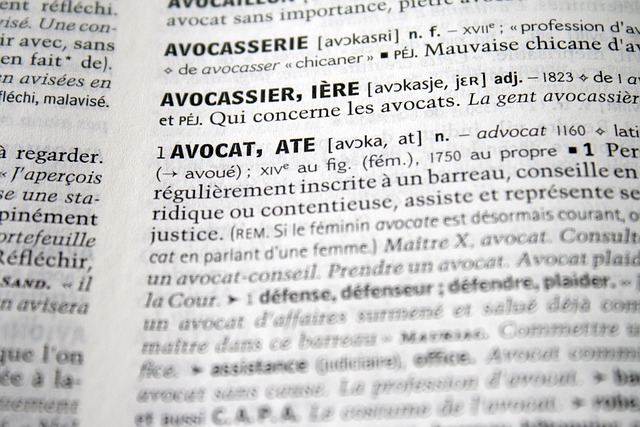The RF Securities Industry operates under a stringent regulatory framework, with "Understanding Regulatory Law" as foundational guidance for market participants. This framework includes laws governing securities trading, issuance, and management, focusing on disclosure, insider trading, fraud prevention, and anti-money laundering. Compliance is crucial for investor confidence, while robust defense strategies are essential during litigation stages of regulatory investigations. Skilled practitioners' successful defenses highlight the industry's commitment to integrity. Pre-litigation preparation involves strategic document review, witness preparation, and tailoring arguments to specific violations. The "Understanding Regulatory Law Litigation Stages" process begins with a complaint, through discovery, depositions, expert testimony, and resolutions like settlements or trials. Post-litigation implications inform future regulations and deterrents, underscoring the dynamic interplay between litigation and policy-making.
The RF Securities Industry, a vital component of global finance, operates within a complex regulatory framework. Understanding the intricate web of laws and standards is crucial for firms aiming to navigate this dynamic landscape successfully. This article delves into the key aspects of RF securities regulation, exploring legal provisions, compliance strategies, pre-litigation preparations, the litigation process, and post-resolution implications. By dissecting these stages, investors and professionals gain insights into managing risks and staying ahead in an evolving regulatory environment.
- Regulatory Framework for RF Securities Industry
- Key Legal Provisions and Compliance Standards
- Pre-Litigation Preparation and Strategies
- Litigation Process: From Filing to Resolution
- Post-Litigation Implications and Future Regulations
Regulatory Framework for RF Securities Industry

The RF Securities Industry is governed by a robust regulatory framework designed to ensure fair practices and protect investors. This intricate system includes various laws and regulations that cover all aspects of securities trading, from initial offerings to post-trade activities. At the heart of this framework lies the understanding of Regulatory Law, which provides clear guidelines for market participants. This legal framework not only prevents fraudulent activities but also facilitates smooth litigation stages should any disputes arise.
Key players in the industry must navigate through a complex web of rules and regulations, ensuring compliance at every step. The ability to comprehend and adhere to these standards is crucial for maintaining investor confidence. Moreover, when facing legal challenges, a strong general criminal defense strategy becomes essential for his clients. Skilled practitioners are adept at winning challenging defense verdicts, demonstrating the importance of a robust regulatory environment in fostering integrity within the RF Securities Industry.
Key Legal Provisions and Compliance Standards

The RF Securities Industry is governed by a robust framework of legal provisions and compliance standards designed to ensure fair practices and protect investors. Understanding Regulatory Law is paramount for all market participants, as it dictates how securities are traded, issued, and managed. Key regulations include those related to disclosure requirements, insider trading, fraud prevention, and anti-money laundering protocols. Compliance with these rules is crucial to avoid legal pitfalls, particularly during the intense scrutiny of regulatory investigations.
Regulatory actions often progress through distinct litigation stages, mirroring the all stages of the investigative and enforcement process. From initial inquiries to formal charges, companies and individuals face stringent scrutiny. A robust defense strategy, including meticulous document review and witness preparation, is essential to navigate these challenges. The ultimate goal is a complete dismissal of all charges for those found innocent or, at minimum, mitigating penalties for guilty parties. The complexities of white collar defense demand expert legal counsel well-versed in the nuances of securities law and regulatory practices.
Pre-Litigation Preparation and Strategies

In the dynamic landscape of RF securities, pre-litigation preparation is paramount for any company or individual facing potential regulatory action. Understanding the intricate web of Regulatory Law is crucial, as it forms the foundation for navigating the litigation stages ahead. This initial phase involves a strategic evaluation of the situation, where legal teams conduct thorough reviews of documents, internal policies, and communication records to identify potential violations and weaknesses in defense strategies. By employing this proactive approach, entities can potentially avoid costly missteps and less favorable outcomes during subsequent legal proceedings.
A key strategy in pre-litigation preparation is recognizing the unique aspects of each case. Across the country, general criminal defense tactics may not always be applicable to RF Securities cases due to their specialized nature. Therefore, focusing on developing tailored arguments that address specific regulatory violations and demonstrating a commitment to compliance can significantly impact the outcome. Additionally, by proactively gathering evidence and witness statements, legal teams can better anticipate opposing arguments, ultimately strengthening their case and increasing the chances of avoiding indictment or less severe penalties.
Litigation Process: From Filing to Resolution

The litigation process within the RF Securities industry is a complex journey governed by intricate Regulatory Law. It begins with a formal complaint filed by an aggrieved party, alleging violations of securities laws or regulatory norms. This filing triggers a series of stages, each demanding meticulous attention to detail and adherence to strict procedural rules. The initial stage involves pre-litigation activities, where both parties exchange information and attempt to resolve the dispute without court intervention, often through mediation or arbitration, which can be more efficient and cost-effective alternatives.
As the process advances, the case moves into litigation proper, characterized by extensive discovery, depositions, and expert testimony. This is where the respective business entities engage in a general criminal defense strategy, aiming to challenge the validity of accusations and protect their interests across the country. The court’s role is pivotal in managing this process, ensuring fairness, and guiding the parties towards resolution. Resolutions can vary from settlements, where both sides agree to terms, to trials, where a judge or jury decides the outcome based on presented evidence. Understanding these regulatory litigation stages is essential for industry players to navigate legal challenges effectively.
Post-Litigation Implications and Future Regulations

Post-litigation implications play a pivotal role in shaping the regulatory landscape for the RF Securities Industry. As we delve into the understanding of regulatory law, it’s crucial to examine how legal battles at the litigation stages can set precedents and influence future regulations. Every case, particularly high-profile ones involving white collar and economic crimes, offers insights that regulators and lawmakers cannot afford to overlook. These insights often lead to the implementation of stricter measures aimed at avoiding indictment and enhancing the white collar defense strategies employed by industry participants.
The implications extend beyond the immediate outcomes of a case. They spark discussions on improving regulatory oversight, refining compliance standards, and adopting innovative approaches to deterring similar misconducts in the future. As regulations evolve, understanding the intricate interplay between litigation and policy-making is essential for industry stakeholders seeking to stay ahead of the curve and navigate the dynamic regulatory environment effectively.
Understanding regulatory law is paramount for navigating the RF Securities Industry. By adhering to the key legal provisions and compliance standards outlined, firms can effectively manage risks and mitigate potential disputes. Pre-litigation preparation strategies prove indispensable in avoiding costly legal battles. When litigation does arise, a clear grasp of the stages involved—from filing to resolution—enables proactive management. Moreover, considering post-litigation implications and anticipating future regulations ensures sustained compliance and adaptability within this dynamic industry. Mastering these aspects fosters transparency, protects investors, and strengthens market integrity.






